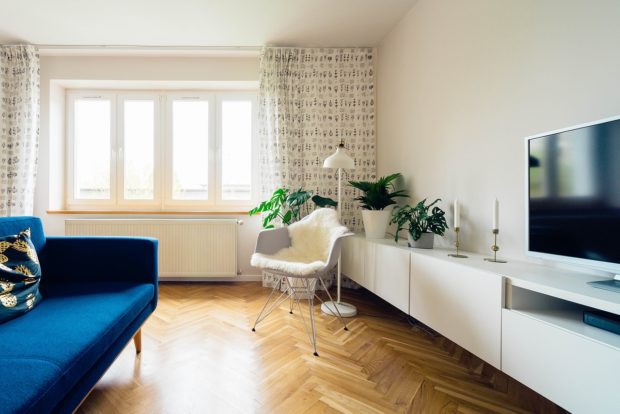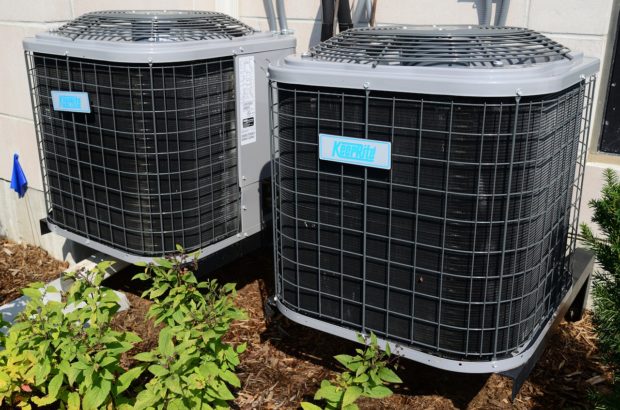Depending on the system set-up of your house, there’s a possibility that your furnace filter and air filter will be the same. Some households have a system that utilizes the same filter while others will have a set-up that’s separately installed but shares ductwork. Some furnace models, mostly the older ones come with a filter fitted directly into the furnace, so it’s vital to ensure that there is an air filter for your central air system.
Research has proved that dirty filters found on your home’s cooling and heating systems return air grille significantly reduce the performance of your system, and in return wastes your energy and money as well. Dirty filters may also reduce your comfort by limiting the circulation of air and not capturing allergens, pollutants and dust particles in the indoor environment. In this case, your system may have to work even harder, which will eventually shorten its life. It’s therefore essential to upgrade dirty air filters before they start creating problems. Here are various reasons why you should upgrade your home air filters.

Prevents pollutants from accumulating in your HVAC system
With time, pollutants will start accumulating in your HVAC system and reduce its performance. Upgrading your filter will reduce the chances of this happening so that the pollutants are trapped in the pleats of your filter and not in your unit.
Removes more pollutants from the air.
Getting rid of contaminants from the air in your home is huge particularly if you have asthma or seasonal allergies. While a furnace filter will reduce pollutants from the air, they may not get rid of them completely. Removing the common triggers of allergy and asthma is vital for protecting you and your family from respiratory complications associated with poor air quality in the house.

While upgrading furnace filters, make sure you check the size and the Minimum Efficiency Reporting Value (MERV) of the filter. The higher the system’s MERV rating, the more efficient your filter will be. A MERV rating of 13, for instance, will be more efficient than a MERV rating of 11. Before choosing the next filter to buy, you should know what factors you should consider when making a purchase.
How to select the appropriate filter for your home air quality needs
While the basic concept of air filters is pretty simple, there are various design options to select from.
To know the type of air filter to select for your home, you should consider these components
Indoor air quality
Pets, candles, air fresheners, smokers and other possible toxin generators can lead to a natural decrease in the quality of your indoor air. The more impact you anticipate your family to have on the quality of your indoor air, the more robust you want your filters to be.
Janwikifoto [GFDL or CC BY-SA 3.0], from Wikimedia Commons
Outdoor air quality
In some areas, the outdoor air is cleaner than others. If your workplace or home, for instance, is near a big industrial facility or energy plant, you may decide to go for more sturdy indoor air filters.
Allergies in your family
If you or any member of your family suffers from asthma, allergies, or any other form of breathing complications, you should consider getting a high-quality filter to keep the air in your house cleaner.
Budget
Some air filters are more costly than others. If your budget is a problem, then you should select your battles when considering premium filters like installing a basic filter for the HVAC unit, but then installing an extra smaller filter to clean the air further in your asthmatic kids bedroom.
The furnace filter and the air filter in your home will remove any bacteria or allergens in the air you and your family are breathing, giving you a more peaceful sleep and a relaxed morning regardless of the system in use or the season. In general, most professionals often recommend that you upgrade the air filter of your HVAC system at least once every month and more regularly if there are specific air quality problems such as smoking in the home.
So every year you will use at least twelve air filters for your HVAC system, and you will then require extra HEPA filters for bedrooms, basements or bathrooms. Budget-wise, it may save you a lot to buy in bulk and obtain a good discount for the disposable filters. You can also opt for washable filters that you can clean and reuse a couple of times. Finally, ensure that you measure the length, width, and height of your filter before making your purchase.
